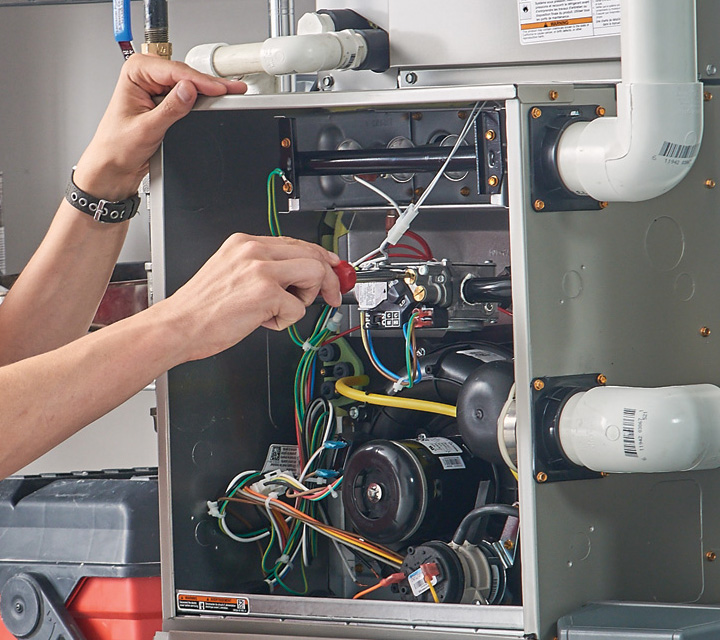Need urgent air conditioner repair to beat the heat.
Need urgent air conditioner repair to beat the heat.
Blog Article
How to Improve Energy Efficiency With Your HVAC System and Heater Upgrades
As power expenses proceed to increase, the importance of improving power efficiency with HVAC system and furnace upgrades can not be overstated. Evaluating your current system's performance and considering energy-efficient alternatives are important initial steps.
Evaluate Your Present System
Prior to getting started on any kind of upgrades, it is necessary to evaluate your present cooling and heating system and furnace to comprehend their efficiency and efficiency. This initial examination provides a structure for recognizing areas that need renovation and educates decisions about potential upgrades. Begin by checking out the age of your a/c system, as outdated models may lack modern-day energy-saving features.

Energy intake records will certainly additionally contribute in gauging your system's functional expenses. By analyzing energy expenses, you can determine patterns of energy use and identify spikes that require more investigation. Finally, take into consideration conducting an expert energy audit to get a professional assessment of your system's efficiency. This comprehensive evaluation will certainly assist you in making notified choices about necessary upgrades, guaranteeing that your financial investments in energy efficiency produce the preferred advantages.
Upgrade to Energy-Efficient Versions
Updating to energy-efficient versions is a critical action in enhancing the general performance of your heating and cooling system and furnace. These modern devices are developed to consume much less power while delivering ideal home heating and cooling, causing considerable price savings on energy bills and a minimized environmental impact.
When thinking about an upgrade, search for models that have high Seasonal Power Efficiency Ratios (SEER) for a/c and Annual Gas Usage Efficiency (AFUE) rankings for heaters. These ratings indicate the effectiveness of the devices, with greater numbers mirroring much better efficiency. Energy-efficient models commonly incorporate sophisticated technologies, such as variable-speed electric motors and smart thermostats, which better enhance power financial savings.
In addition, several energy-efficient heating and cooling systems are furnished with enhanced insulation and much better sealing, which lessen power loss and enhance interior comfort. residential hvac company. While the first financial investment may be greater, the long-term cost savings on energy prices and possible tax rewards for making use of energy-efficient devices can counter this cost substantially

Inevitably, updating to energy-efficient designs not just adds to a more sustainable future yet likewise boosts the comfort and performance of your home or company.
Optimize System Setups
To optimize the efficiency of your HVAC system and furnace, it is important to enhance system setups customized to your certain demands. Begin by setting your thermostat to an energy-efficient temperature level. The United State Department of Power recommends a wintertime setting of 68 ° F when you are wide awake and lowering it while you rest or are away. In summertime, go for 78 ° F throughout the day.
Use programmable or smart thermostats that enable you to schedule temperature next page modifications instantly. This guarantees your system operates only when necessary, decreasing power intake. In addition, guarantee that your system is readied to run in the appropriate mode-- home heating in wintertime and air conditioning in summer season-- while preventing the continuous fan option unless needed for air circulation.
Consistently review and change setups based upon seasonal adjustments, tenancy patterns, and specific comfort choices. Also, guarantee that vents and registers are unobstructed, permitting for optimal air flow. Think about zoning systems that allow customized convenience in various locations of your home, better enhancing effectiveness. By fine-tuning these setups, you can achieve substantial energy savings while preserving a comfy living environment.
Improve Insulation and Sealing
A well-insulated home is essential to making the most of the efficiency of your HVAC system and heating system. Proper insulation decreases the workload on these systems, consequently saving power and decreasing utility expenses.
Along with insulation, securing gaps and fractures visit their website is important. Pay special interest to home windows, doors, and any type of infiltrations in wall surfaces, such as electric outlets and pipes fixtures. Weatherstripping and caulking can efficiently seal these openings, avoiding drafts that compromise your HVAC efficiency.
Additionally, make sure that air ducts are appropriately insulated and sealed. Leaking air ducts can result in substantial power losses, minimizing system performance. Using mastic sealant or metal tape to seal air duct joints can improve air movement and performance.
Schedule Normal Upkeep
Routine upkeep of your HVAC system and heating system is necessary for making sure optimum efficiency and durability. During maintenance, a certified technician will certainly clean up and replace filters, check cooling agent degrees, examine ductwork for leaks, and review general system operation.
It is advised to schedule upkeep at the very least twice a year-- as soon as in the spring for the air conditioning system and once in the fall for the heater. furnace repair. Normal maintenance helps maintain consistent indoor temperatures, guaranteeing convenience throughout the year. Additionally, a properly maintained system operates extra successfully, which can result in recognizable reductions in power bills
Disregarding upkeep can cause reduced efficiency, raised wear and tear, and inevitably, system failure. By focusing on normal solution, home owners can avoid unexpected malfunctions and ensure their heating and cooling system and heater operate at peak efficiency. Spending in upkeep is a crucial action in enhancing power effectiveness and developing a more lasting home environment.
Verdict
Finally, improving power efficiency within HVAC systems and furnace upgrades is necessary for minimizing power consumption and enhancing general comfort. An organized strategy that includes examining the existing system, purchasing energy-efficient designs, optimizing settings, blog here enhancing insulation, and scheduling regular maintenance can bring about substantial advantages. Executing these techniques not only decreases power costs yet also adds to a more sustainable environment, making it essential for property owners to prioritize these upgrades.
Report this page